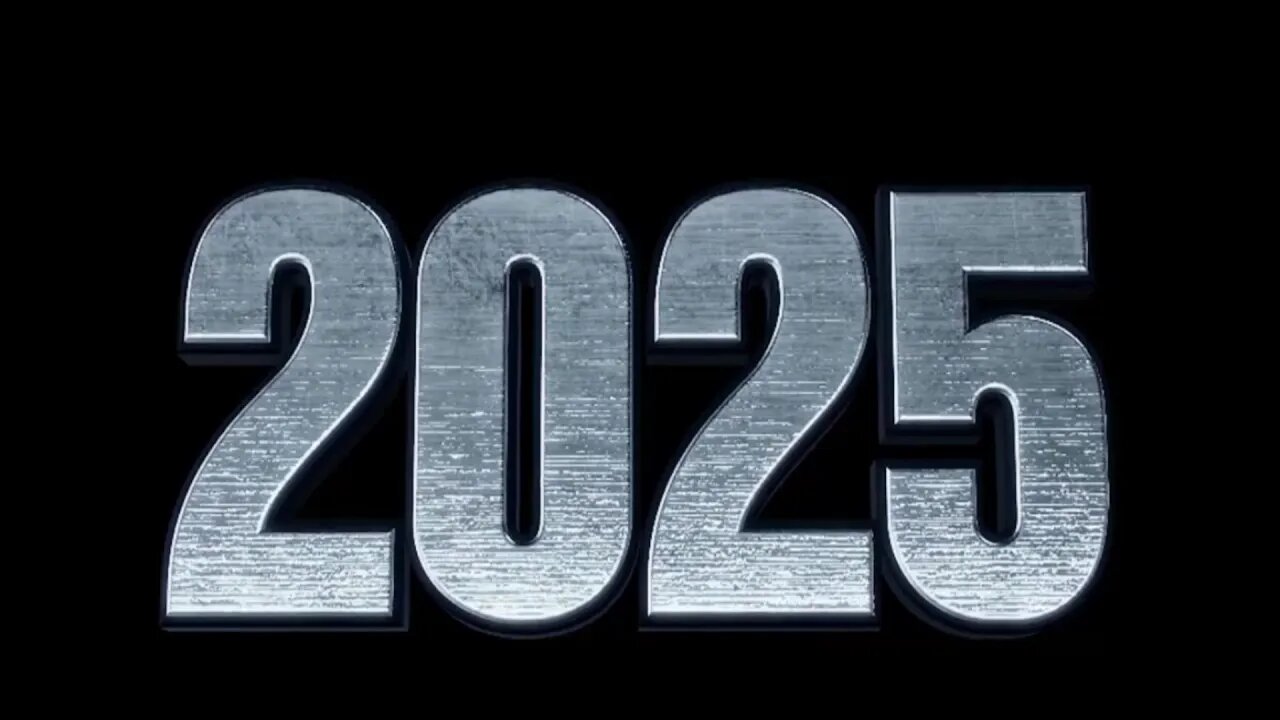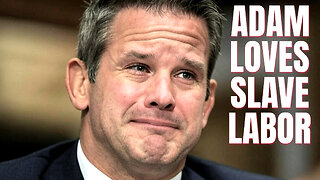Premium Only Content

Study Predicts 2025 Climate Collapse Worldwide
#climatechange #endtimes
It is interesting to note how the phrase "climate change" is replacing "global warming" as the catch phrase of environmentalism. Some scientists/climatologists are certain that human activity, primarily greenhouse gas emissions, is impacting the environment. What they are not certain about is precisely what the impact will be. A couple of decades ago, "global cooling" was the fear, with warnings of a new ice age being the primary scare tactic. While most scientists/climatologists today believe that global warming is the primary risk, uncertainty has led to "climate change" being used as a less specific warning. Essentially, the climate change message is this: greenhouse gas emissions are damaging the environment, and, while we are not certain what the effect will be, we know it will be bad.
Climatologists, ecologists, geologists, etc., are unanimous in recognizing that the earth has gone through significant temperature/climate changes in the past. Despite the fact that these climate changes were obviously not caused by human activity, many of these same scientists are convinced that human activity is the primary cause of climate change today. Why? There seem to be three primary motivations.
First, some truly and fully believe the greenhouse gas emissions are causing climate change. They honestly examine the data and come to that conclusion. Second, some hold to the climate change mindset with an almost religious fervor. Many within the environmentalist movement are so obsessed with protecting "Mother Earth" that they will use any argument to accomplish that goal, no matter how biased and unbalanced it is. Third, some promote the climate change mentality for financial gain. Some of the strongest proponents of climate change legislation are those who stand to have the greatest financial gain from "green" laws and technologies. Before the climate change mindset is accepted, it should be recognized that not everyone who promotes climate change is doing so from an informed foundation and pure motives.
How, then, should a Christian view climate change? We should view it skeptically and critically, but at the same time honestly and respectfully. Most importantly, though, Christians should look at climate change biblically. What does the Bible say about climate change? Not much. Likely the closest biblical examples of what could be considered climate change would be the end times disasters prophesied in Revelation 6–18. Yet these prophecies have nothing to do with greenhouse gas emissions; rather, they are the result of the wrath of God, pouring out justice on an increasingly wicked world. Also, a Christian must remember that God is in control and that this world is not our home. God will one day erase this current universe (2 Peter 3:7-12) and replace it with the New Heavens and New Earth (Revelation 21–22). How much effort should be made "saving" a planet that God is eventually going to obliterate and replace with a planet so amazing and wonderful that the current earth pales in comparison?
Is there anything wrong with going green? No, of course not. Is trying to reduce your carbon footprint a good thing? Probably so. Are renewable energy sources worth pursuing? Of course. Are any of these things to be the primary focus of followers of Jesus Christ? Absolutely not! As Christians, our focus should be proclaiming the truth of the gospel, the message that has the power to save souls. Saving the planet is not within our power or responsibility. Climate change may or may not be real, and may or may not be human-caused. What we can know for certain is that God is good and sovereign, and that Planet Earth will be our habitat for as long as God desires it to be. Psalm 46:2-3, "Therefore we will not fear, though the earth give way and the mountains fall into the heart of the sea, though its waters roar and foam and the mountains quake with their surging."
-
 6:11
6:11
Prophetic Watch
1 year agoWho Are ‘They’?
6981 -
 1:17:17
1:17:17
Kim Iversen
3 hours agoChina BLAMES USA For Covid Leak | Are Ports Really EMPTY Since Trump's Tariffs?
48.1K24 -
 LIVE
LIVE
The White House
2 hours agoLo-Fi MAGA Video to Relax/Study To 🇺🇸
1,106 watching -
 1:23:06
1:23:06
vivafrei
3 hours agoAdam Kinzinger Says Quiet Part Out Loud! Mineral Deal with Ukraine? Cash for Racism & MORE!
56K36 -
 1:20:49
1:20:49
Roseanne Barr
5 hours ago $28.19 earnedOur Leader: Alex Jones | The Roseanne Barr Podcast #97
60.8K54 -
 LIVE
LIVE
Nerdrotic
4 hours ago $8.68 earnedThunderbolts Group Therapy, James Gunn's Superman LEAKS, PolyGONE | Friday Night Tights 352
4,580 watching -
 LIVE
LIVE
LFA TV
20 hours agoALL DAY LIVE STREAM - FRIDAY 5/2/25
814 watching -
 LIVE
LIVE
Dr Disrespect
7 hours ago🔴LIVE - DR DISRESPECT - ARC RAIDERS - THE WAIT IS OVER
2,065 watching -
 LIVE
LIVE
StoneMountain64
5 hours agoNEW Easter Eggs, Sniper NOT Nerfed, FAST Friday
125 watching -
 LIVE
LIVE
Keepslidin
2 hours ago $0.16 earned$8000 START | ROAD TO 100K | Mother.land
89 watching